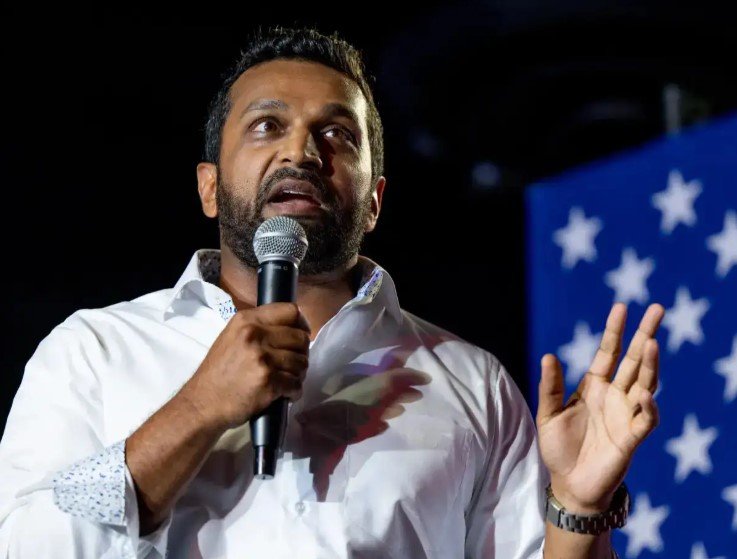Kash Patel, the FBI director nominee under President-elect Donald Trump, has reportedly been targeted in a cyberattack attributed to Iranian hackers. The incident highlights the ongoing risks of foreign interference in U.S. politics and raises questions about the security of individuals close to the incoming administration.
Iranian Hackers Target Key Trump Ally
Multiple media outlets, including CNN, reported on December 4, 2024, that Kash Patel, a former national security official and key ally of Trump, was informed by the FBI about the cyberattack. Sources say that Iranian hackers may have gained access to some of Patel’s personal communications, although details remain scarce. The breach comes at a sensitive time, as Patel is set to replace Christopher Wray as FBI director.
The attack is part of an escalating wave of cyber threats aimed at figures in Trump’s inner circle. Patel, who previously played a major role in the Trump administration’s efforts to counter Iranian influence, has been a central figure in the president-elect’s transition team.
The FBI’s notification to Patel and the Trump team was reportedly made as part of an ongoing effort to keep key figures in the administration informed about potential security risks. However, despite this revelation, the Trump transition team has not yet issued an official comment on the hack, fueling speculation about the nature of the attack and its broader implications for national security.

Trump’s Transition Spokesman Defends Patel’s Role
Alex Pfeiffer, a spokesperson for Trump’s transition team, did not address the hack directly but reaffirmed Patel’s significant role in the administration. Pfeiffer stressed that Patel, who had been deeply involved in Trump’s earlier efforts to confront Iran, would continue implementing Trump’s policies as the FBI director.
Patel’s background as a national security official, particularly his work in the first Trump administration, positions him as a key figure in Trump’s plan to combat foreign adversaries. Pfeiffer noted that Patel’s experience with Iran would be invaluable in ensuring U.S. security and protecting the country from further threats.
Despite the Iranian cyberattack, the Trump team remains confident that Patel’s leadership at the FBI will help safeguard America’s interests. The transition spokesperson further emphasized that Patel was dedicated to strengthening U.S. counterintelligence efforts, particularly in relation to Iran and other state-sponsored actors.
Growing Cybersecurity Concerns Amid Increased Foreign Hacks
This cyberattack on Patel follows a worrying trend of increasing foreign cyber espionage targeting individuals connected to the Trump administration. Just weeks earlier, the FBI alerted Todd Blanche, Trump’s lead attorney and nominee for deputy attorney general, about a separate Chinese hacking attempt. The Chinese government has denied any involvement, but the episode underscores the broader concerns over cybersecurity during a critical transition period.
The rise in foreign hacking attempts targeting prominent figures has raised alarms about the vulnerabilities of the U.S. political elite. Cybersecurity experts warn that these breaches could expose sensitive information and disrupt the functioning of government operations. As a result, it has become clear that individuals like Patel, who will play a pivotal role in shaping U.S. national security policy, are prime targets for adversaries seeking to influence U.S. politics.
Ongoing Efforts to Safeguard National Security
While the FBI is reportedly investigating the Iranian hack, the incident highlights the ongoing challenges of defending against sophisticated cyberattacks. The U.S. government, alongside private sector partners, has ramped up efforts to strengthen cybersecurity defenses in response to rising foreign threats. However, this attack on a high-profile political figure is a reminder that even well-protected individuals can become targets.
For Patel, this cyberattack is another chapter in his contentious relationship with Iranian interests. During his tenure as a national security advisor, Patel was instrumental in shaping U.S. policy toward Iran, including his advocacy for strong sanctions and efforts to curb the influence of Iranian-backed militias across the Middle East. As FBI director, Patel’s approach to counterintelligence is expected to focus heavily on threats from state actors like Iran and China, as well as non-state terrorist organizations.
The Iranian hack, though concerning, may ultimately fuel calls for stronger counterintelligence measures in the U.S. as it enters a new phase of political leadership under Donald Trump.
